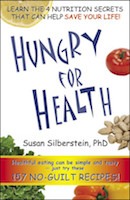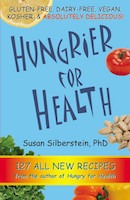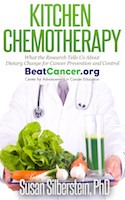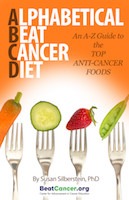Top 7 Dark Chocolate Health Benefits
February 14, 2014 | Author: Top 7 Dark Chocolate Health Benefits“There is nothing in the world like chocolate. It is luxurious, sensuous, delightful, passionate, inspirational, sexual and exciting to all senses.” –David Wolfe, Naked Chocolate
 Top 7 Dark Chocolate Health Benefits
Top 7 Dark Chocolate Health Benefits
- Antioxidant Benefits
- Cardiovascular Health
- Diabetes Protection
- Anti Cancer Benefits
- Bone Health
- Dental Health
- Brain Health
Valentine’s Day chocolates are a giving and eating tradition. From antiquity to the present, chocolate has been a beloved food, one of the most popular in Western culture. Chocolate is the number one food craved by women, especially between the ages of 25 and 40. But is chocolate just junk food? Here is a glimpse of both the light side and dark side of chocolate.
Chocolate comes from the cacao tree, Theobroma cacao, which literally means “cacao, food of the gods.” The most revered of all rainforest foods and the most pharmacologically complex food source in the Amazon jungle, the cacao bean contains about 12,000 natural chemical constituents. In ancient Central American cultures, raw cacao beans were used as the coin of the realm, and the Aztec Emperor Montezuma filled his treasure vaults with cacao beans, not gold!
Chocolate Health Benefits
For almost all of its 3500 year history, chocolate has been consumed as a beverage. The royal chocolate drink called Xocolati was valued for its ability to build resistance and fight fatigue. In modern times, there is growing scientific evidence that chocolate offers many other health benefits — from decreasing dental cavities and increasing brain energy, to providing cardiac support, strengthening bones, and preventing cancer.
This activity is especially due to pure chocolate’s rich content of minerals like magnesium and antioxidants like flavonols. Researchers at the University of California Davis and Pennsylvania State University found a direct relationship between certain flavonols in cocoa and a beneficial effect on cardiovascular function, notably improved cholesterol ratios, lowered blood pressure, reduced arterial plaque, and increased blood vessel flexibility.
Cocoa and dark chocolate contain a wide variety of powerful antioxidants, way more than most other foods. Raw, unprocessed cocoa beans are among the highest scoring foods in terms of ORAC values. Oxygen Radical Absorbance Capacity (ORAC) is a measure of the antioxidant activity of foods. Dark bittersweet chocolate, as opposed to milk chocolate or white chocolate, containing cacao levels of 60% -90%, is much richer in antioxidant flavonols.
These beneficial compounds neutralize dangerous free radicals that damage cellular DNA and cause disease. Studies indicate that people with high blood levels of flavonols have lower risk of heart disease, asthma, and diabetes. Dark chocolate can reduce insulin resistance, another common risk factor for many diseases like heart disease and diabetes. Dark chocolate also has one of the lowest glycemic indexes of sweet foods.
Dark Chocolate Nutrition
Besides antioxidants, dark chocolate is rich in fiber and minerals. Although consuming a full bar at one time is not necessarily a good idea in terms of sugar and calorie intake, it is interesting to note that a 100 gram bar of dark chocolate with 70-85% cocoa contains:
- 11 grams of fiber.
- 67% of the RDA for Iron.
- 58% of the RDA for Magnesium.
- 89% of the RDA for Copper.
- 98% of the RDA for Manganese.
- Other minerals like potassium, phosphorus, zinc and selenium
Anti Cancer Benefits of Dark Chocolate
Studies show that dark chocolate can help lower risk of lung, prostate, and skin cancer. According to Dr. David Servan-Schreiber in his book Anticancer, dark chocolate containing more than 70 percent cacao is loaded with potent antioxidant flavonols, polyphenols and proanthocyanidins, all of which help to slow the growth of cancer cells. The higher the percentage of cacao, the higher the content of these beneficial components.
In addition to antioxidant activity, other anti-cancer benefits have also been found in chocolate. Researchers from the Lombardi Comprehensive Cancer Center at Georgetown University found that natural pentamer compounds in cocoa deactivate certain proteins that encourage cancer cells to continually divide (Molecular Cancer Therapeutics, April 18, 2005).
A Note of Caution
Chocolate is controversial, so let’s define our terms. In an amusing dichotomy, the dark side of chocolate is light but the light side is dark! Never consume milk chocolate or white chocolate, which are low in beneficial compounds and high in fat, dairy and sugar — some of cancer’s favorite foods –and which can cancel out the cacao benefits.
However, even in the case of dark chocolate — despite all of its benefits — we need to exercise restraint. Make sure you consume organic chocolate that is free of cancer-causing pesticides. Chocolate is highly acidic, characteristic of an environment in which cancer thrives. Chocolate may dehydrate, causing constipation in some persons — a known risk factor for various cancers. In large quantities, caffeine-like substances in chocolate can raise the levels of cortisol and other stress hormones that can contribute to disease. Chocolate is part of the caffeine family, and two major long-term women’s health studies suggest a connection between high caffeine intake and precancerous or high-risk breast lesions (Mayo Clinic.com). Bottom line, moderation is the key. Dark chocolate is not only a healthful food, it is also good for the soul — and that alone is worth the indulgence! So enjoy your dark chocolate and have a happy Valentine’s Day!
Join the conversation: Ask Holistic Cancer Coach Facebook Group
References:
[1] http://nutritiondata.self.com/facts/sweets/10638/2
[2] http://authoritynutrition.com/7-health-benefits-dark-chocolate




